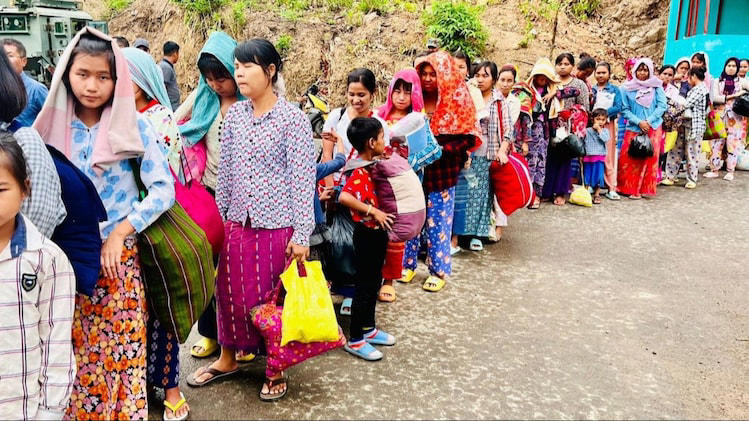The Manipur government has identified a staggering number of 5457 illegal immigrants in Kamjong District. This revelation sheds light on the complex issue of illegal immigration, posing socio-economic and security challenges to the state. The findings underscore the need for decisive action and comprehensive strategies to address this pressing concern.
Kamjong District, located in the northeastern state of Manipur, shares borders with Myanmar, making it susceptible to infiltration and illegal immigration. Over the years, the district has witnessed an influx of individuals from neighboring countries, raising concerns about their legal status and potential implications on the local population and security landscape.
The identification of over 5000 illegal immigrants in Kamjong District serves as a wake-up call for the state government and law enforcement agencies. It highlights the urgent need for robust mechanisms to monitor and regulate immigration, ensuring adherence to legal procedures and safeguarding the interests of the indigenous population.
Illegal immigration poses multifaceted challenges to the socio-economic fabric of Manipur. The influx of unauthorized individuals not only strains resources but also impacts employment opportunities and strains social cohesion. Moreover, the presence of illegal immigrants raises security concerns, with implications for law and order and border security.
The identification of such a significant number of illegal immigrants underscores the importance of proactive measures to address the root causes of immigration. It necessitates a comprehensive approach that combines stringent border control measures with initiatives aimed at addressing socio-economic disparities and improving livelihood opportunities in border areas.
The Manipur government’s efforts to identify and document illegal immigrants in Kamjong District mark a crucial step towards addressing the issue. However, mere identification is not sufficient. It is imperative to follow up with appropriate action, including deportation of illegal immigrants and strengthening border surveillance to prevent further infiltration.
Additionally, the government must work towards enhancing the socio-economic development of border areas to discourage illegal immigration. This entails investment in infrastructure, healthcare, education, and skill development initiatives to uplift the living standards of the local population and mitigate the push factors driving migration.
Collaboration with neighboring countries, particularly Myanmar, is essential to effectively tackle the issue of illegal immigration. Bilateral agreements and cooperation mechanisms can facilitate information sharing, intelligence gathering, and coordinated border management efforts to curb illegal activities along the border.
Furthermore, public awareness campaigns and community engagement initiatives play a vital role in addressing illegal immigration. Empowering local communities to identify and report suspicious activities can complement government efforts and strengthen border vigilance.
It is crucial for the Manipur government to adopt a proactive and multi-pronged approach to address the challenges posed by illegal immigration effectively. This requires political will, resource mobilization, and concerted efforts from all stakeholders, including government agencies, law enforcement authorities, civil society organizations, and the local community.
In addition, the identification of 5457 illegal immigrants in Kamjong District underscores the gravity of the issue and the need for urgent action. The Manipur government must prioritize efforts to address illegal immigration comprehensively, focusing on border security, socio-economic development, bilateral cooperation, and community engagement. Only through concerted and sustained efforts can the state effectively tackle the challenges posed by illegal immigration and safeguard the interests of its citizens.


